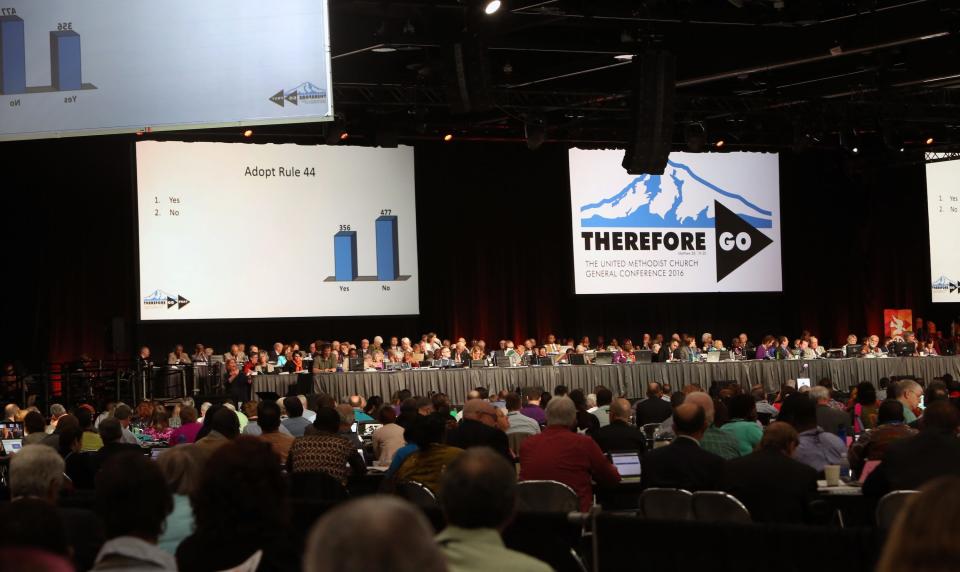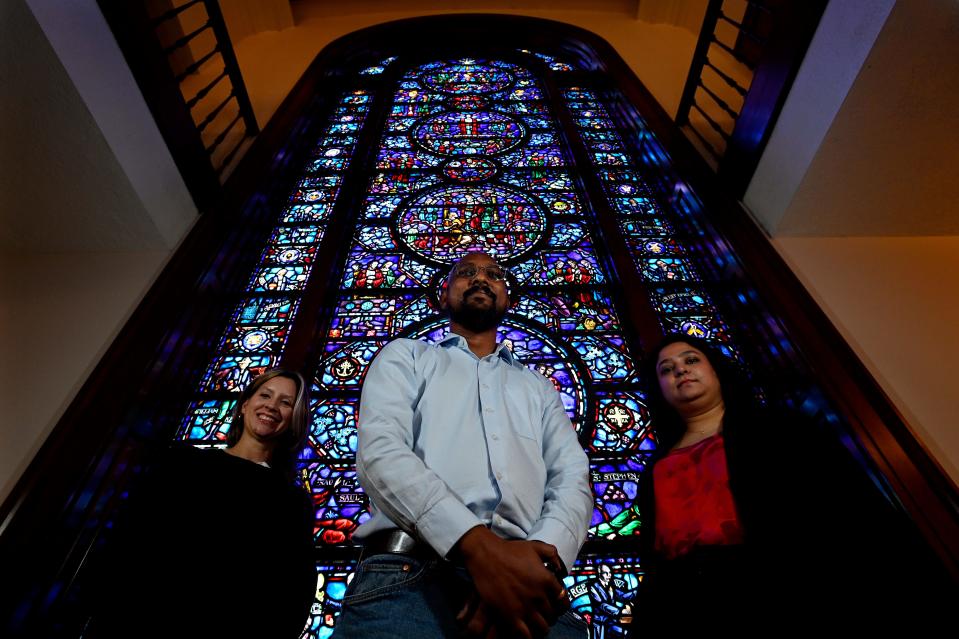United Methodist assembly faces key decisions amid historic conflict. Why it matters.
The United Methodist Church will bear the same name after May 3, but in many ways will be an entirely new denomination.
The UMC General Conference is gathering in Charlotte to decide on legislation expected to shape the long-term future of the nation’s largest mainline Protestant denomination following a historic splintering. About a quarter of U.S.-based churches in the largely Nashville-based UMC left the denomination, or disaffiliated, between 2019-2023 following disagreements over theology and church policy — including dealing with LGBTQ+ rights.
This UMC General Conference, which meets every four years, isn’t merely reassembling a disoriented church body. It’s creating something entirely new.

The upcoming UMC General Conference, which runs April 23 to May 3, is entering uncharted territory as the denomination deliberates potential solutions to its current conflicts. It will be the first and major test of a new model of cooperation, both in how United Methodists operate ministries and interact with one another across regional and ideological divides.
Here’s why it’s so unique and pivotal.
A conflict with precedent, yet unprecedented solutions
There have been at least seven previous splits and schisms in the Methodist church of a similar scale and consequence to the present splintering, such as the emergence of new denominations.
“Some might say an honest examination of the people called Methodist show that we split more often than we come back together,” said Ashley Boggan Dreff, head of the UMC General Commission on Archives & History, in a video produced for a series on splits and separations. “While this might sound a bit disheartening, it also provides room for new growth.”
But many of those previous splits were only between Methodists in the U.S. Many revolved around a dispute (slavery) that the Civil War and federal law ultimately did more to resolve than church policy did. What’s unprecedented about the present splintering is the high-wire act between the shifting stance on LGBTQ+ rights in the U.S. church versus the cultural and legal conservatism among United Methodists outside the U.S.
The UMC General Conference next week is expected to face competing proposals, one to expand a policy allowing churches outside the U.S. to disaffiliate and the other aims to prevent further splintering. That latter proposal, called regionalization, elevates the authority and autonomy of regional United Methodist bodies outside the U.S., enabling those bodies to enforce different policies on LGBTQ+ rights than the American church.
A new debate takes center stage
Unlike most previous general conferences, the battle over LGBTQ+ rights will be somewhat secondary to the deliberations about the future of the international church.
Decisions on historic proposals to remove anti-LGBTQ+ restrictions are still up for debate, but their success will largely depend on the outcome of the regionalization proposal.
Illustrating that interdependency, a coalition of centrist and progressive UMC leaders published a vision statement ahead of the Charlotte gathering voicing support for regionalization and removing anti-LGBTQ+ restrictions on issues such as clergy ordination and same-sex marriage. “We have engaged in ongoing conversations and reflection with United Methodists from around the world to discern what changes we might make as a General Conference that might strengthen unity amidst diversity and allow enough flexibility for our various geographical regions to thrive,” the coalition said.
Meanwhile, traditionalist advocacy groups are focusing their lobbying on the proposal to allow disaffiliations for churches outside the U.S., a major shift from those groups, which for decades sought to pass and preserve anti-LGBTQ+ restrictions.

It's the first big step, with more likely to follow
Noticeable changes might soon follow depending on what the UMC General Conference decides.
Regional United Methodist bodies in the U.S. are set to meet this summer. One tier of that regional authority, called annual conferences, which appoint clergy, might ordain more LGBTQ+ candidates for ministry if the UMC General Conference decides to remove a ban on LGBTQ+ ordination.
Pending the UMC General Conference’s budget approval, jurisdictional conferences — comprised of groupings of annual conferences— will decide whether to reduce, maintain, or increase the number of bishops. Due to proposed cuts to a fund that pays bishops’ salaries, many jurisdictional conferences are expected not to add new bishops to replace outgoing ones.
Liam Adams covers religion for The Tennessean. Reach him at ladams@tennessean.com or on social media @liamsadams.
This article originally appeared on Nashville Tennessean: Why churches are leaving the UMC and why assembly matters

